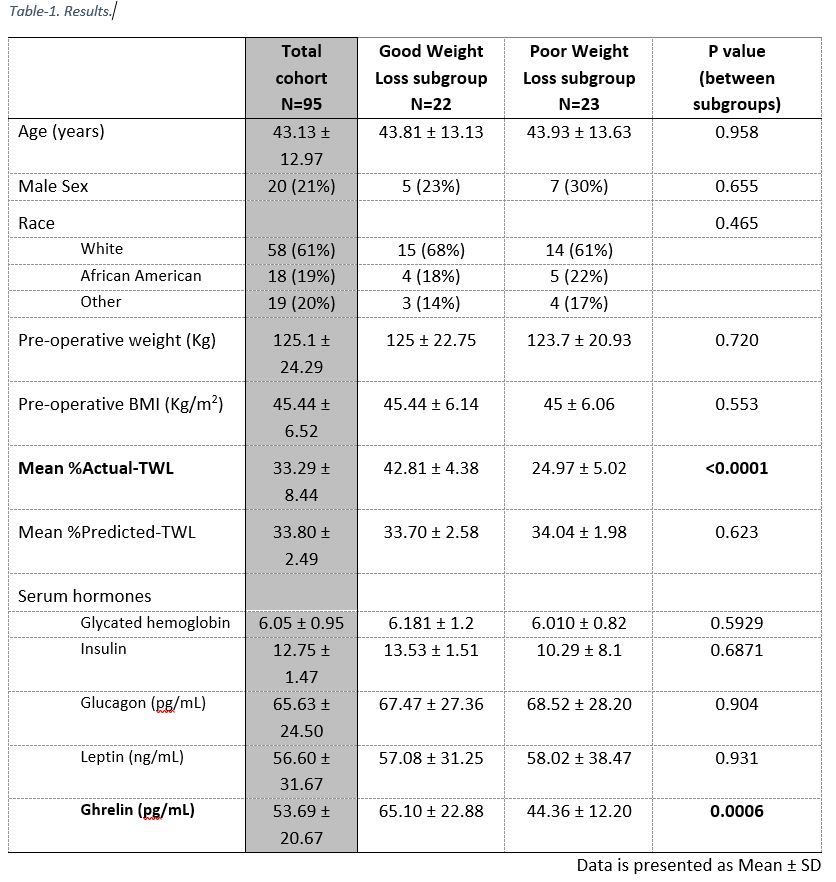Back to 2022 Poster Competition
Pre-Operative Ghrelin Levels May Improve Accuracy of Weight Loss Prediction following Roux-En-Y Gastric Bypass Surgery (RYGB)
Andrei Moscalu, MCh, MD, Mehran Karvar, MD, Hassan Aliakbarian, MD, Cullen Roberts, MD, Yingjia Chen, PhD, Eric Sheu, MD, PhD, Ali Tavakkoli, MD
Brigham and Women's Hospital, Boston, MA
Introduction: Bariatric surgery is the most effective treatment for obesity. Despite this, outcomes are variable. To improve outcomes and aid with shared decision-making process, prediction calculators, including the American College of Surgeons Metabolic and Bariatric Surgery Accreditation and Quality Improvement Program (MBSAQIP) calculator, are used, with variable accuracy. Here we investigated if addition of biological-markers can improve weight loss prediction accuracy following RYGB.
Methods: Predicted 1-year weight loss (%Predicted-TWL) using the MBSAQIP calculator was compared to actual total body weight loss at 1-year (%Actual-TWL) for 95 RYGB patients. Two subgroups were identified: 1) Good-Weight-Loss (GWL): %Actual-TWL was > 5% from predicted, and 2) Poor-Weight- Loss (PWL) group: %Actual-TWL <5% from predicted. Serum, pre-op fasted glucagon , insulin, glycated hemoglobin, leptin, and ghrelin were measured.
Results: 23.2% of cases had GWL, while 24.2% had PWL. Patient demographics, baseline characteristics and all measured hormones were similar between the two subgroups, except ghrelin which was significantly higher in the GWL subgroup vs. PWL subgroup (65.10 ± 22.88 pg/mL vs 44.36 ± 12.20 pg/mL; p=0.0006; (Table-1).
Conclusions: MBSQIP weight loss calculator incorrectly predicted weight loss by +/- 5% TWL in nearly 50% of patients. Differences in pre-op ghrelin, and not demographic factors or any other hormones , are associated with failure of this weight loss predictor. Addition of pre-operative biological-markers has the potential of improving accuracy of weight loss prediction calculators.
Back to 2022 Poster Competition

